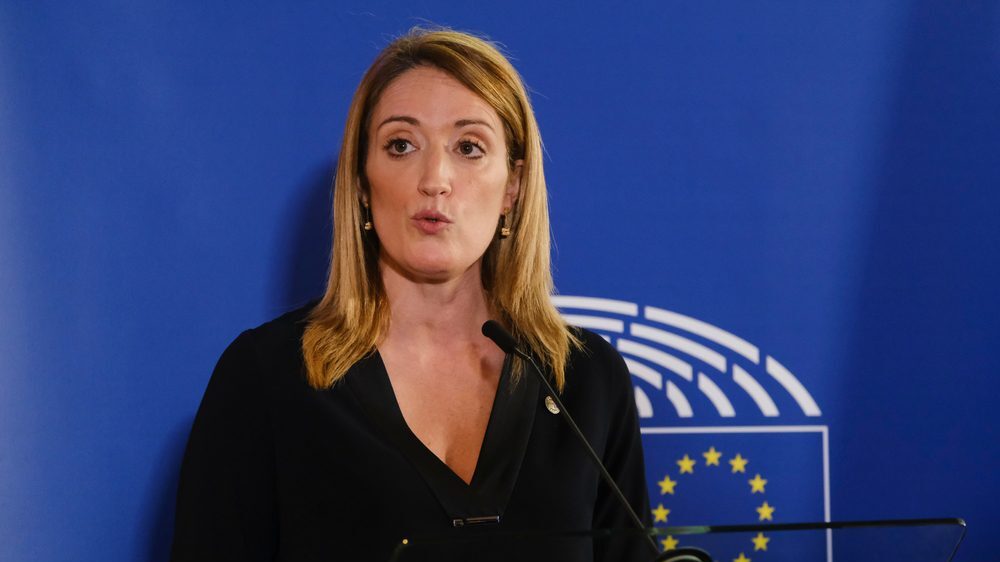
President of the European Parliament Roberta Metsola
Photo: Alexandros Michailidis / Shutterstock.com
A new EU report has indicated that the European Parliament’s beleaguered pension fund should not be bailed out by taxpayers, as top EU officials try to save a legacy pension fund that could run out of capital by 2024 or 2025.
The European Parliament’s Voluntary Pension Fund (VPF) has come under scrutiny in recent weeks for a €302 million deficit incurred through lavish payments to retired Eurocrats, as insiders warn that the fund is facing financial ruin.
MEPs met in camera in April to evaluate the fund’s future in the hopes of avoiding a very embarrassing bailout, which, coming a year before European elections, could change the parliamentary status quo.
In the transparency documents prepared by the European Commission, auditors expressed concern that the VPF was veering towards a financial calamity and suggested that the retirement age for MEPs should be raised from 63 to 65, an irony unlikely to be lost on French pension protestors.
German Green MEP Daniel Freund compared the VPF to a Ponzi scheme last month with a motion, calling on MEPs to voluntarily give up their pension. This motion was flatly rejected by the European Parliament by a vote of 272 against, 203 for and 148 abstentions.
The poor management and financial recklessness of the fund will surely vindicate perennial criticisms of the Parliament. The head of communications for the Brussels think tank MCC John O’Brien lashed out at the institution, calling it a “never-ending gravy train” for Eurocrats, and added that it was “beggars belief” to even consider taxpayers as footing the bill.
The report also highlighted the “reputational risk for the institution” caused by media articles that the VPF has investments in an American arms manufacturer, contrary to the ethos of the Parliament and the EU.
EUObserver and other outlets reported in January of financial links between the Parliament’s pension fund and blacklisted arms manufacturers. Similar ties to overseas tax havens have also been uncovered.
10s of 1000s of shares purchased in arms, mining and fossil fuel companies, including one that produces cluster munitions, to finance the European Parliament's voluntary pension scheme! Is it any wonder our EU institutions have so little credibility?https://t.co/OHv3vgPQDn pic.twitter.com/PI46fn4fz7
— Clare Daly (@ClareDalyMEP) March 7, 2023
The Commission was keen to stress that taxpayer money should not be used to bail out MEPs and called on Parliament to embrace greater transparency going forward to avoid future financial cliffs.
The European Parliament has been under an ethical cloud all year in the wake of Qatargate and the cupidity of high-level MEPs, including former vice-president of Parliament Eva Kaili, who is currently under house arrest for her role in a corruption scandal. Parliamentary officials are moving to tighten up ethical regulations regarding financial top-ups and foreign NGOs.
Eurosceptics have persistently claimed that generous EU pension deals were an institutional flaw of the Parliament.
